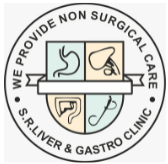Gastritis is due to the inflammation of the gastric mucosa of the stomach. Depending on the cause, gastritis may be acute or chronic and may persist and develop serious conditions such as atrophy of the stomach.
Commonly, the inflammation of gastritis results from infection with the same bacterium that causes most stomach ulcers. Gastritis may occur suddenly (acute gastritis), or it can occur slowly over time (chronic gastritis).
Symptoms:
- Burning pain in your upper abdomen
- Bloating
- Belching
- Nausea
- Vomiting
- Ulcers (in some cases)
- Stomach cancer (increased risk)
Chronic gastritis develops gradually and is more likely to cause dull pain and a feeling of fullness or loss of appetite after a few bites of food. For many people, though, chronic gastritis causes no signs or symptoms at all. Occasionally, gastritis may cause stomach bleeding, but it’s rarely severe. But be aware that bleeding in your stomach that causes you to vomit blood or pass black, tarry stools requires immediate medical care.
Care and Guidance:
Treatment of gastritis depends on the specific eating habits or Situations that occurred with the Patient. Acute gastritis caused by NSAIDs, excessive Junk food, or alcohol, may be relieved by stopping the use of those substances. Chronic gastritis caused by H. pylori infection is treated by eradicating the bacteria. Most gastritis treatment plans also incorporate medications that treat stomach acid in order to reduce signs and symptoms you’re experiencing and promote healing in your stomach.
